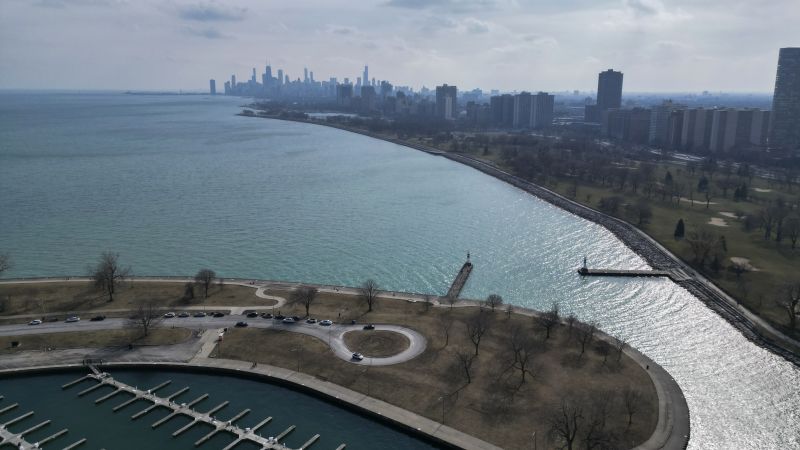This winter, Kelli Doyen, the owner of Gwinn Model Towne Inn in Michigan’s Upper Peninsula, has seen a significant decrease in snowfall, impacting the hotel’s revenue from snowmobilers. The warmest winter on record for the lower 48 states has led to less snow and ice, affecting tourism and outdoor activities in the Great Lakes region. Doyen and other business owners in the Midwest rely on winter sales to sustain them until the summer tourism season begins. With a drop in bookings, Doyen’s husband has had to pull from his 401(k) to keep the hotel afloat.
The lack of snowfall has caused severe drought conditions in several states, leading to economic impacts on small businesses that rely on winter tourism. For example, in Minnesota, Governor Tim Walz highlighted the economic impact of low precipitation on snow-dependent businesses. Businesses in Marquette, Michigan, have seen a decrease in hotel bookings and overall revenue due to the lack of snow for outdoor activities. The Bureau of Economic Analysis emphasizes the significance of snow activities in the region’s economy, contributing hundreds of millions of dollars to businesses clustered around the Great Lakes.
Some events and festivals in Marquette, such as the UP200 sled-dog race, have been canceled due to the lack of snow and warm temperatures. Businesses in the area have had to quickly adapt to the changing conditions, with some offering summertime activities like kayaking packages and outdoor events to offset the loss in winter revenue. Business owners are hopeful for an early spring and summer to recoup some of the lost revenue from the winter season. Germain, Estler, and Doyen are transplants to the region who appreciate the beauty and majesty of Upper Peninsula winters, despite the challenges they are facing.
Doyen continues to operate the hotel with a sense of community responsibility and plans to offer discounts to attract more visitors in the spring months. Business owners are partnering with each other to create unique dining events and outdoor activities to adapt to the changing climate and customer demands. Despite the hardships faced by businesses in the region, there is a sense of resilience and determination to keep doors open and support the local community. Moving forward, business owners are preparing for unpredictable seasons and the need to diversify offerings to attract visitors year-round. The impact of climate change on businesses in the Great Lakes region is a reminder of the importance of adaptation and collaboration in the face of environmental challenges.


